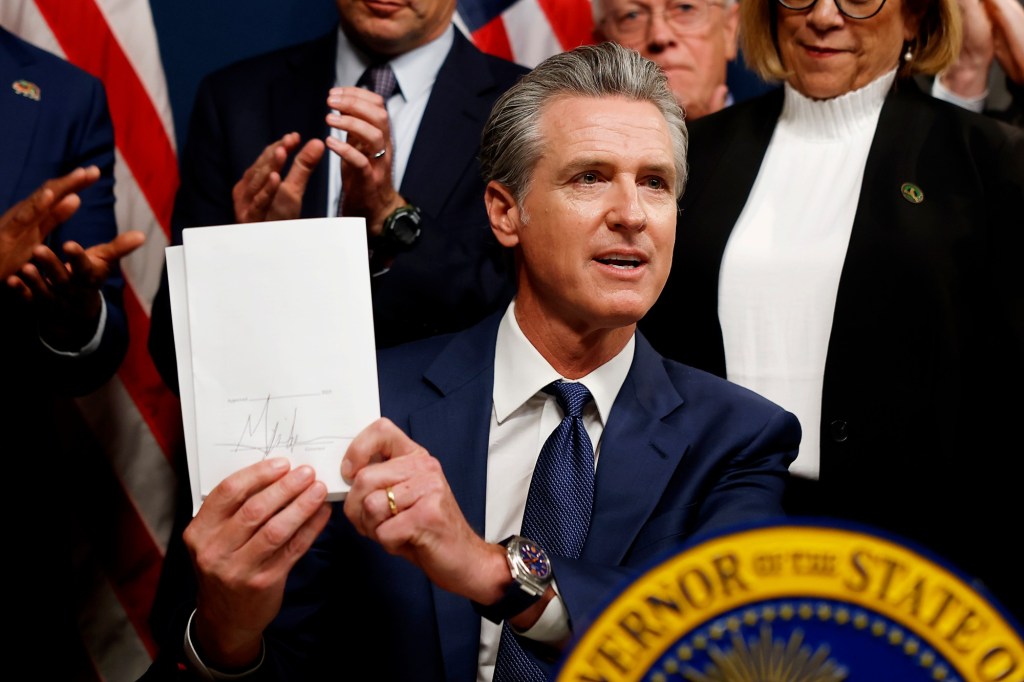
In 2001, then-Rep. Loretta Sanchez explained to the Orange County Register how gerrymandering worked after the 2000 U.S. Census.
“If my colleagues are smart, they’ll pay their $20,000, and Michael [Berman] will draw the district they can win in. Those who have refused to pay? God help them.”
As columnist Dan Walters explained, Berman was a top Democratic Party honcho who pioneered “microtargeting voters” through computer algorithms to gerrymander legislative and congressional districts, which then were drawn by the Democrat-dominated Legislature.
As a result of that and other outrages, in 2008 voters passed Proposition 11, the Voters FIRST Act. It gave redistricting of Assembly and state Senate districts to a new, independent Citizens Redistricting Commission, consisting of 14 members: five from each of the two largest parties, plus four independents. In 2010, 61% of voters passed Proposition 20, the Voters FIRST Act for Congress, giving the commission redistricting authority over districts for U.S. representatives.
That gerrymandered redistricting system of two decades ago is what Gov. Gavin Newsom wants to return to with Proposition 50, which voters will decide on Nov. 4. The official title voters will read itself shows why it ought to be rejected: “AUTHORIZES TEMPORARY CHANGES TO CONGRESSIONAL DISTRICT MAPS IN RESPONSE TO TEXAS’ PARTISAN REDISTRICTING.”
Texas’ redistricting scheme, signed into law on Aug. 29 by Gov. Gregg Abbott and supported by President Trump, indeed is partisan. It changes maps mid-term, before the 2030 Census. And it’s expected to gerrymander several new victories for Republicans. We denounced it in an Aug. 19 editorial.
This is California, not Texas. To fight an attack on democracy in Texas, we shouldn’t attack democracy here with a Rube Goldberg scheme designed to advance Newsom’s presidential profile and pad his fundraising lists. As Mom taught: Two wrongs don’t make a right.
As a practical matter, California making this move will only further inflame the gerrymandering problem, encouraging a further spiral of gerrymandering offsetting Democratic gains in other states. Bad actions often yield more bad actions.
There’s also a fair question: Will this really be temporary? If California Democrats are successful at getting voters to let them gerrymander the state, do you think the state’s dominant party will simply give up power and let more Republicans get elected in the future?
One of the best things Props. 11 and 20 did was instruct the commission to draw district lines close to the physical boundaries of cities and counties, which each have different needs best not divided, when possible. The gerrymandered Prop. 50 districts passed by the Legislature would end that and stick them with polities often of disparate conditions and needs.
Norco Mayor Greg Newton told the newspaper his city “will not receive the same level of advocacy or support in a (new) district that crosses county lines, with much larger cities who have different needs than Norco.” This is the sort of problem communities across California will see if Newsom gets his way and California is gerrymandered.
The California Redistricting Commission has worked fine. It’s protecting our democracy. It’s ensuring a reasonable degree of representation for more conservative Californians. Proposition 50 undermines all of this just to spit in the face of California Republicans.



